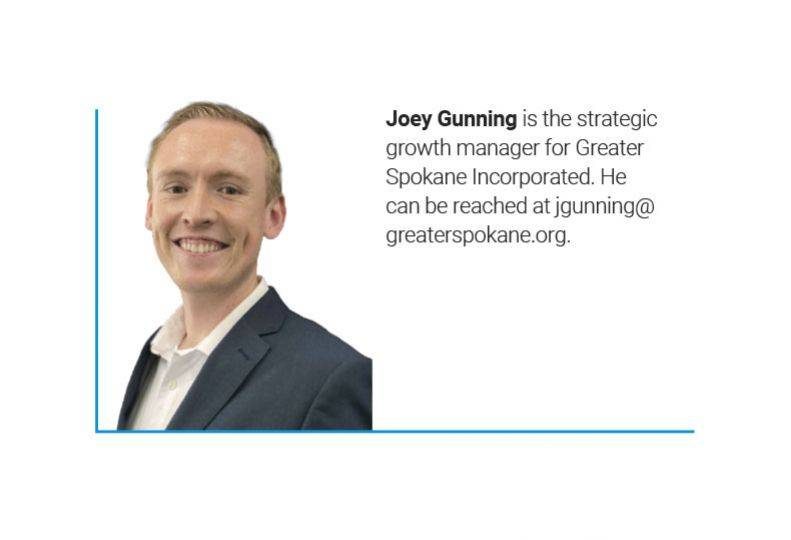
Home » Embracing AI needed to shape future workforce
Embracing AI needed to shape future workforce
Emerging tech will bring revolution in basic skills

November 22, 2023
“We are on the cusp of unprecedented change.”
Those were the words of Lightcast CEO Chris Kibarian during the opening address of the 2023 Lightcast Connect Conference, in Coeur d’ Alene.
Lightcast, a global leader in labor market analytics, is dedicated to unlocking new possibilities in the labor market. The change that Chris was referring to in his opening statement is being driven by developments in artificial intelligence and the rapidly evolving skills requirements for our workforce.
Chris went on to say, “We are at the very beginning of the skills revolution,” a sentiment echoed by many in the tech industry.
Technology and AI are redefining the way we work. The top skills needed for the average job have changed 37% in five years. More and more employers are requiring digital skills for nondigital jobs. There is a common misperception that AI is going to wipe out all of our jobs, and we will all be unemployed in 20 years. In 2023 alone, there have been over 385,000 postings for AI-related jobs.
Should we be focusing on building a future-ready workforce? Should Spokane care about all of this? Does Spokane even have a tech sector? The answer to all of these questions is a resounding “Yes.”
Spokane County’s tech sector is growing—and it’s growing faster than people may realize. If we look at the change in number of physical establishments—payrolled business locations—for Spokane County over the last five years, six of the top 10 growing industries are related to technology under the North American Industry Classification System.
Furthermore, over the same period we’ve seen tremendous job growth (84%) among these tech industries, with projections indicating that Spokane County will exceed the national average in the next five years. The data tells us that we are on a trajectory toward a thriving technology sector in the coming decade.
While tech-related jobs are seeing rapid growth in our region, the industry as a whole is actually our fourth top-growing industry, following transportation, health care, and construction. But AI is going to infiltrate all sectors, not just tech.
According to Dr. Ashwin Acharya, global lead for data and generative AI for talent and organization at information technology services company Accenture, “Data, AI, and now generative AI will create a generational shift in how companies compete, work, and deliver value.”
Individual work will change. Labor Markets will change. Organizations will change. Society will change. Are we AI-ready?
We need to dismiss the misperception that tech jobs require advanced math and science skills, a four-year or higher degree, are limited to Silicon Valley “big tech,” or that it is too late or too difficult to start a tech career path. Amid a nationwide labor shortage, we need to shift our focus toward our existing local talent and consider how we can upskill or reskill our workforce for these tech-related jobs across all industries.
Twenty-two percent of the employees currently working in our fastest-growing tech jobs are 55 or older. Employers need to consider how they are preparing the future tech workforce.
Acharya notes, “Preparing the broader workforce for AI will require an evaluation of current skills and tasks.” Employers should be evaluating how they are incorporating AI and embracing the change.
In Spokane, one company that has been embracing the change and experiencing substantial growth is Drip7. Designed to be fun and engaging, Drip7 combines delivery, content, and science to create a training platform that drives behavior change and increases knowledge retention. Drip7 is developing its own AI solution to help companies bridge context into microlearning, helping fortify against cyberattacks and giving companies the ability to change and add content as needed.
Heather Stratford, founder of Drip7 Inc., says the business environment is going through rapid changes that are creating a new way to work. In the technology and cybersecurity space, AI is being used by both the attackers and the defenders. The question is who can adapt and evolve faster. Being able to change training and update staff on current trends is crucial for staying ahead in this ever-changing world of fortifying your workforce.
Drip7 spearheaded the development of and is co-sponsoring INCH360’s second annual Inland Northwest Cyber Hub Conference, which will be 12:30-5 p.m. Dec. 6 at the Hemmingson Center on the Gonzaga University campus. Other sponsors of the event include STCU, Google Cloud, Palo Alto, Structured Communications, and ISOutsource.
This event will be a gathering of different levels of cybersecurity and technology specialists throughout the region and strengthens the growing technology hub. INCH360 is a regional tech-focused group; 360 refers to the goal to be a hub for all people and levels of the cybersecurity industry.
INCH360’s mission is to promote education, collaboration, and communication about resources, regional companies, and jobs. This is a free event for businesses and technology professionals but requires pre-registration.
Latest News Education & Talent Insights
Related Articles
Related Products




![Brad head shot[1] web](https://www.spokanejournal.com/ext/resources/2025/03/10/thumb/Brad-Head-Shot[1]_web.jpg?1741642753)